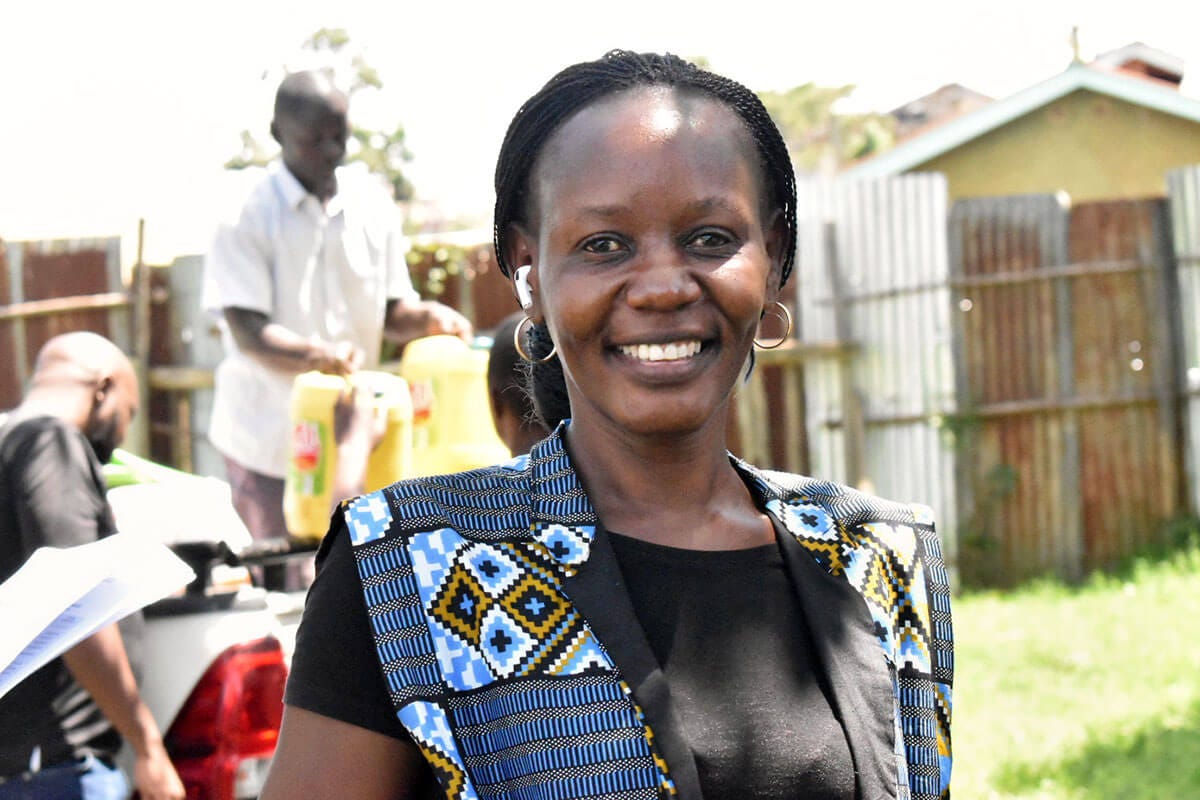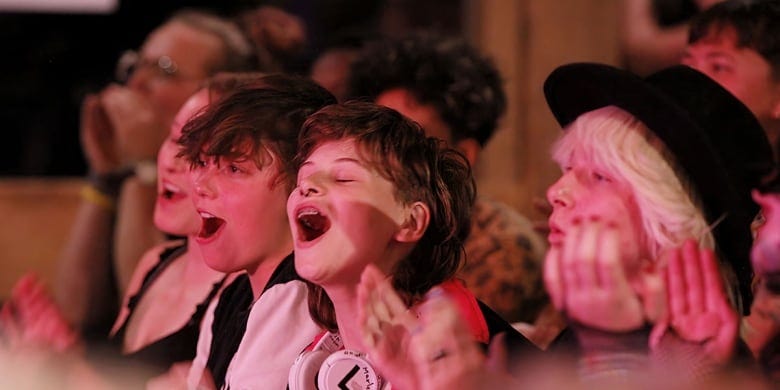Global Roundup: Turkey Women’s Rights Group, Kenya Women Politicians Online Harassment, Irish Mammies Protest for Trans Youth, Queer Teens at Summer Camp, Queer Arab Digital Platform & Book
Curated by FG Contributor Samiha Hossain
Photo y © YASIN AKGUL / AFP
A Turkish court on Wednesday rejected prosecutor attempts to shut down a leading anti-femicide campaign group on charges of violating administrative laws and "morality". Riot police cordoned off the courthouse and detained two supporters of the campaign group ahead of the closely watched hearing. Cheers from the We Will Stop Femicide Platform members and supporters went up in Istanbul's main courthouse when the presiding judge dropped the case after four hearings stretching over 15 months.
This decision offers society a spark of hope about putting trust in the justice system. We will keep on fighting for women's rights all over Turkey. -Fidan Ataselim, We Will Stop Femicide Platform secretary general
The We Will Stop Femicide Platform has been campaigning against the murder and abuse of women in Turkey since 2010. It became a lightning rod for criticism from Islamic conservatives after speaking out against Erdogan's 2021 decision to pull Turkey out of a European convention aimed at combating violence against women. More conservative members of Erdogan's ruling party also accused the group of damaging traditional family values by speaking out in defence of LGBTQ rights. The group called the recent charges political and said it was never presented with an explanation as to which laws it was supposed to have violated.
The We Will Stop Femicide Platform says 403 women were murdered in Turkey last year and 423 in 2021. The group's prosecution alarmed human rights groups and followed a string of other hugely controversial jailings of Erdogan opponents and reporters.
Tullie Apiyo ran for office in 2022. After facing severe harassment online, she took an appointment as a gender affairs officer in Kisumu, Kenya. Photo: UN Women/Tabitha Icuga.
Helen Tullie Apiyo, popularly known in the Kenyan city of Kisumu as Tullie Tuls, says she realized “politics is a man’s world” when running to be a member of the County Assembly in Kisumu’s Kilimani ward in 2022. Tullie lost her nomination and was later appointed as the officer in charge of gender affairs at Kisumu’s office of the women representative. She said that her experience in electoral politics made her more interested in positioning herself strategically.
I faced so much violence on Facebook. I am separated from my husband, so people could say unimaginable things using [pseudonymous] accounts, to me and my family. It was just chaotic. -Helen Tullie Apiyo
A 2022 analysis on violence against women in elections conducted by African Woman and Child Feature Services, showed that women political leaders were among the most harassed online. UN Women’s recent report “Pambana!” (or “Keep at it” in Swahili) found that name-calling, “blackmail using negative images of women”, and other messages were spread online and aimed to instill fear, reduce women’s meaningful participation, and undermine their credibility to participate in elections. In response to the challenges faced by women politicians in Kenya’s 2022 elections, UN Women is developing social media training sessions to help candidates both find messages that resonate with voters and minimize online harassment.
Kenya has constitutional guarantees of gender equality, as well as a quota mandating that government bodies are not staffed by more than two thirds of either gender. In the December 2022 cabinet and executive-level appointments, 46 per cent of the positions were filled by women. However, Jennifer Mbatiany, deputy governor of Bungoma county, calls for more action.
Gender-based violence pushes women out of politics and discourages others from entering. And it limits the voices of half the population in decision-making…more action is urgently needed to end the violence, hold perpetrators accountable, and foster a culture of zero tolerance. Only then will true gender equality in Kenyan politics—and society and society at large—be within reach. -Jennifer Mbatiany
Claire Flynn along with Karen Sugrue and other mothers and parents in Ireland, campaign in support of trans youth. Mammies for Trans Rights began because of the “terrible fear, upset and distress” felt by trans youth in Ireland and beyond. The group of about 10 active women protest for trans rights mainly at weekends.
Claire says the grassroots group is a place that offers people who don’t know how to support the trans community somewhere to do exactly that.
We’re trying to create a space in which there’s an alternative narrative. Maybe their own mother isn’t in a place to give them the support they need, but it gives young people something huge to see: that there are mams for whom it’s a completely normal experience. -Claire Flynn
Karen, a sociology lecturer and psychotherapist, believes the rise in dehumanising narratives has led to aggression towards the queer community across Europe.
We really feel for the trans children, the parents of trans children. The trans community as a whole [is] being othered, monsterised and demonised in the media. There’s no one there to say these are teenagers, kids, they’re just living their lives. -Karen Sugrue
On Saturday, the group will be protesting, along with allies from all over the country, against proposed book bans in Ireland. Protests over the stocking of LGBTQ+ books in Ireland’s libraries resulted in a man in Cork being arrested for alleged harassment last month. Counter-protestors have gathered at most rallies in a bid to tackle the right-wing backlash, which has seen Cork City Council forced to shut a library ahead of a demonstration. Both Claire and Karen want trans people, everywhere, to know they’re “loved, doing the right thing” and “entitled to be who you are”.
Summer Qamp. (TIFF)
Filmmaker Jen Markowitz's new documentary, Summer Qamp, follows queer, trans, and non-binary teens at Camp fYrefly in rural Alberta in Canada. The documentary is screening at the Toronto International Film Festival (TIFF) this year.
I spent the past year of my life making the documentary Summer Qamp, based on the experiences of the campers attending Alberta's Camp fYrefly for LGBTQ2S+ youth. Getting to know the campers and learning about their lives brought into sharper focus something about my own: the queer youth I'd experienced was nothing like this. -Jen Markowitz
Markowitz writes about how growing up queer in the 90s, the queer representation they saw in movies were mostly about death and being cast away by family and friends. They also say they had to sneak into these movies because they were often rated inappropriate for Markowitz’s age bracket at the time. They say it added a “layer of shame and guilt” for them.
That I'd look back on these years and notice I'd been deprived of a few key formative experiences was expected. But what took me by surprise was that it would take a group of queer teens in Alberta to help me to see the entirety of the youth that could have been, had I been surrounded by community. -Jen Markowitz
Markowitz further discusses the impact the young campers at Camp fYrefly and being surrounded by queer affirmation had on them. Markowitz gets updates from the campers and says they’re starting hormone therapy; they're leading pride parades in their rural towns; they're even making their own films about life as a queer teen.
Summer Qamp is more than a film for me. It changed my life and showed me just how much my era of queers, and those who came before us, can gain from spending time with a generation of queer futures. -Jen Markowitz
Image by YOSEF PHELAN
Marwan Kaabour is the founder of Takweer, an Instagram archive dedicated to Arabic-speaking, LGBTQIA+ history and pop culture. Now, it’s expanded into a book exploring West Asia’s LGBTQIA+ community through language and literature.
While the page launched in late 2019, the idea was born two years earlier, when Kaabour was struck by the sonic parallels between the Arabic word “takwir” (“to make a world”) and the English word “queer”. He melded the two words into the portmanteau “takweer”: an expression to which he assigned the signification “to make queer”. As well as collating clips of LGBTQIA+ icons from the Arabic-speaking world, the account encourages its followers to engage with culture in the region in a new way – highlighting works that might not be explicitly queer, but which carry themselves with an irrepressible wink of camp.
We need to carve out and document our part of history and take ownership over it. Put it into our own words, and not have it endlessly relegated to footnotes or stuck between the parentheses of a misguided heteronormative writer. It’s important to document these instances to avoid them being lost or forgotten. -Marwan Kaabour
Kaabour has grown the page into a vital online resource for the queer Arab community. Whether posting about the tragic passing of queer Egyptian activist Sarah Hegazi and Saudi trans woman Eden Knight, Takweer has surpassed its beginnings as a viral meme page to a “communal space” for users to engage in dialogue, find moments of joy and come together.
Kaabour ultimately wants to prove that queer, Arab youth don’t need to solely rely on westernised forms of LGBTQIA+ representation. His next step is a book, due for release in June next year. The Queer Arab Glossary is a study of how queerness is expressed in spoken dialects across the Arabic-speaking region. Divided into eight dialects of spoken Arabic, The Queer Arab Glossary features eight essays by queer Arab writers, activists, artists, and academics to reflect on the glossary’s findings and themes of language and queerness.
With the book specifically, I hope that we can take back ownership of our queer lingo, reappropriate derogatory words, and start using it more widely in the face of western words that have for too long been the norm within our communities. -Marwan Kaabour
Samiha Hossain (she/her) is an aspiring urban planner studying at Toronto Metropolitan University. Throughout the years, she has worked in nonprofits with survivors of sexual violence and youth. Samiha firmly believes in the power of connecting with people and listening to their stories to create solidarity and heal as a community. She loves learning about the diverse forms of feminist resistance around the world.






